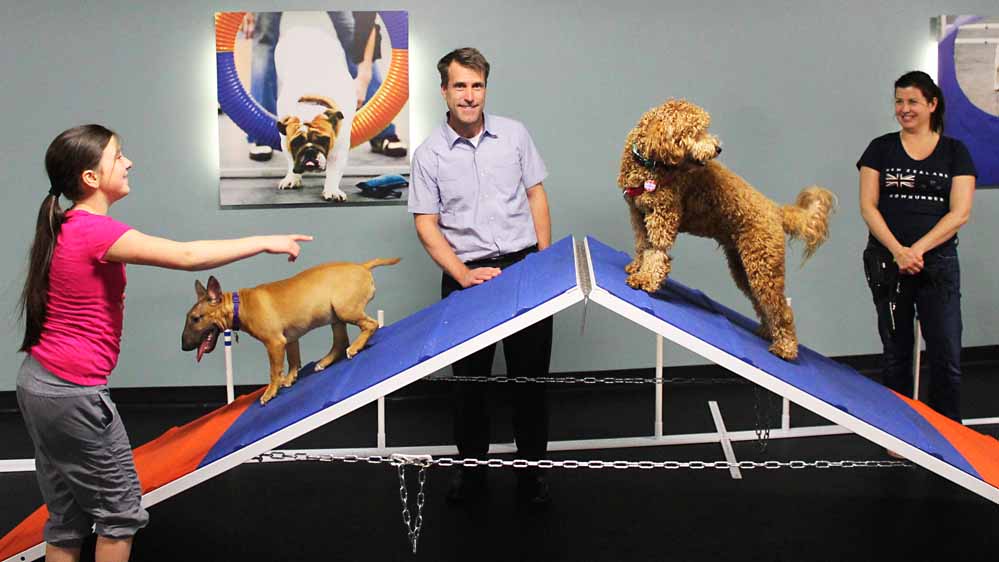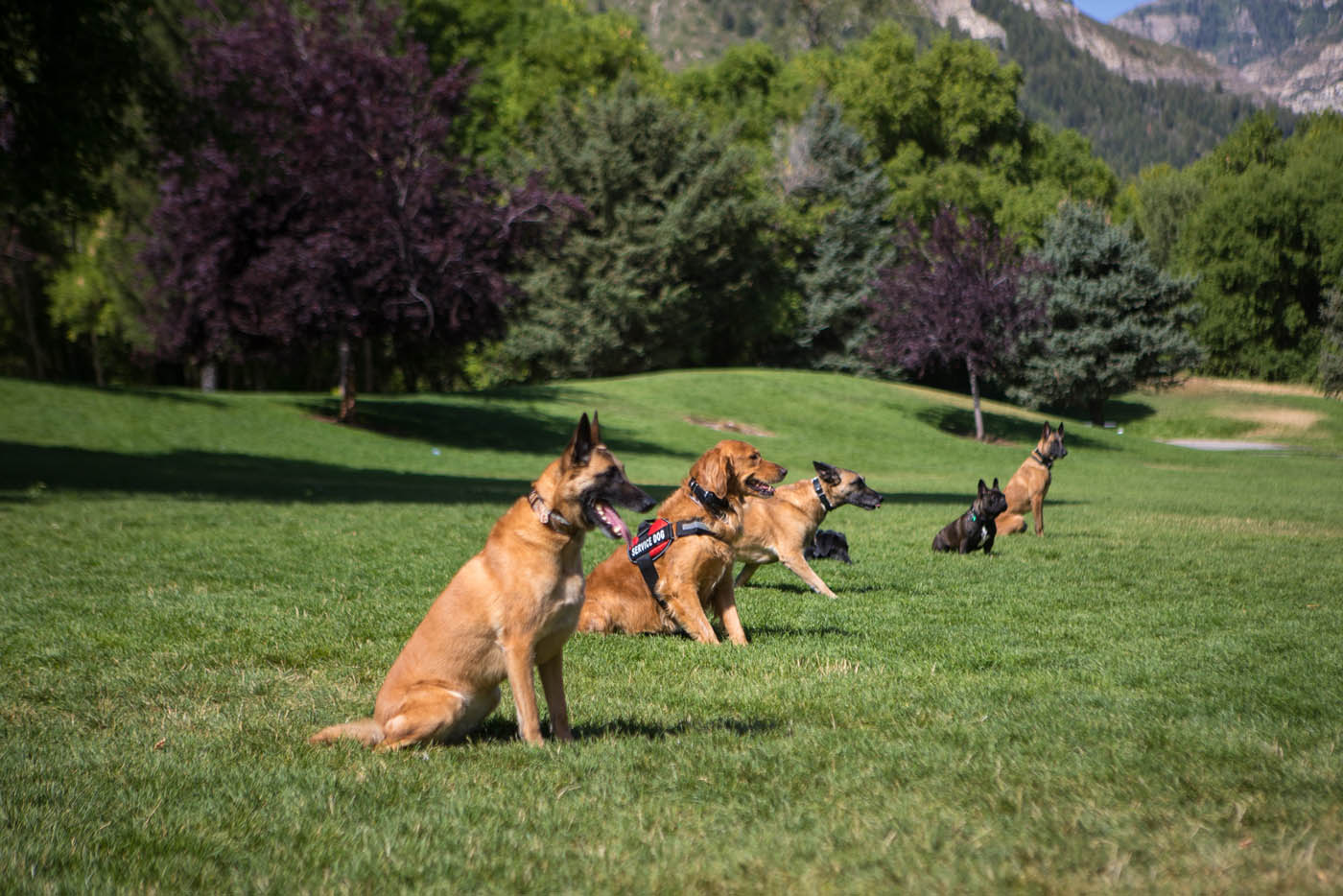Reliable Strategies for Successful Pet Training: A Comprehensive Overview
Effective dog training needs a nuanced understanding of canine actions. It rests on the concepts of positive support and uniformity. Fitness instructors should acknowledge the value of necessary commands and socializing. Addressing usual behavior problems can transform a pet dog's disposition. As the bond in between proprietor and pet enhances, the means they communicate evolves. The journey of successful training incorporates various techniques that might amaze even skilled family pet proprietors. What are the crucial elements that can make a significant distinction?
Recognizing Dog Behavior
Understanding canine habits is vital for efficient pet dog training, as it allows trainers to interpret a canine's activities and responses in various situations. Pets interact primarily with body language, vocalizations, and faces. Acknowledging indicators of anxiety, hostility, or fear can assist instructors readjust their techniques to guarantee a positive training experience. A wagging tail does not always suggest happiness; the context and other body signs need to be considered.
In addition, understanding a pet's breed-specific traits can supply insights right into their behavior patterns and impulses. Socializing plays an important duty in forming a canine's feedbacks to brand-new people and atmospheres. Observing a pet dog's play design can likewise expose their personality and convenience degrees. By meticulously assessing these habits, instructors can produce tailored approaches that foster understanding and reinforce the bond between canine and proprietor, inevitably bring about even more effective training end results.
The Importance of Positive Reinforcement
Favorable support is a key strategy in pet dog training that enhances the learning procedure by gratifying wanted behaviors. This approach encourages dogs to repeat actions that generate positive outcomes, such as treats, appreciation, or play (Dog Training Near Me). By associating etiquette with rewards, pets come to be more determined and engaged throughout training sessions

Integrating positive support right into training regimens can cause quicker knowing and much better retention of commands. It advertises a cheerful ambience that improves both the dog's experience and the trainer's fulfillment, making it an essential element of reliable pet dog training.
Crucial Commands Every Canine Must Know

Producing a Constant Training Arrange
Developing a constant training timetable is crucial for efficient canine training, as it helps strengthen discovering and produces a feeling of regular for the pet. An organized method allows both the fitness instructor and the pet dog to expect training sessions, which can boost emphasis and engagement. Preferably, training sessions must be brief, lasting between 5 to 15 minutes, to maintain the dog's attention and excitement.
Integrating training right into day-to-day activities, such as nourishment or strolls, can also promote uniformity. This assimilation assists canines connect training with positive experiences. It is essential for instructors to remain versatile; unforeseen events might demand changes to the routine.
In addition, rep is essential. Regular technique of commands and behaviors solidifies understanding and develops confidence. By sticking to a consistent timetable, trainers can guarantee that their pets create good habits and respond accurately to commands, preparing for reliable training end results.
Socialization: Trick to a Well-Adjusted Pet dog
Socializing is necessary for a pet's development, influencing their behavior and communications with individuals and other animals. Very early exposure to numerous environments, seems, and experiences can greatly boost a dog's adaptability and confidence. Employing efficient socialization strategies can assist guarantee a well-adjusted canine friend.
Value of Very Early Socializing

Strategies for Reliable Socializing
While numerous dog owners acknowledge the significance of socializing, comprehending efficient methods to promote this process is vital for fostering a well-adjusted pet dog. Progressive exposure to varied settings, individuals, and various other animals can greatly enhance a canine's comfort degree in different circumstances. Favorable support plays a crucial duty; rewarding desired actions encourages pets to approach brand-new experiences with self-confidence. Structured playdates with well-mannered dogs assist minimize and create social skills concern responses. Signing up in obedience classes can likewise give regulated atmospheres for socialization. Lastly, keeping a calm disposition as a proprietor strengthens the dog's complacency, permitting more effective interactions. These strategies collectively add to a adaptable and balanced canine friend.
Handling Usual Behavioral Issues
Dealing with common behavioral issues is important for maintaining a harmonious connection in between canines and their proprietors. Key challenges such as aggression, too much barking, and jumping habits need targeted approaches to handle effectively. Understanding the origin triggers of these actions can lead to effective treatments and an extra well balanced canine friend.
Addressing Hostility Issues
Hostility in dogs can materialize in numerous types, posing challenges for fitness instructors and owners alike. Attending to these problems necessitates an extensive understanding of the underlying reasons, which may include resource, territoriality, or fear securing. Identifying triggers is crucial; proprietors should observe their pet's body movement and behaviors to pinpoint particular circumstances that provoke aggressiveness. Favorable support methods can successfully change hostile habits, fulfilling tranquil responses to identified triggers. Consistency is key, and owners have to stay patient throughout the training process. Sometimes, specialist assistance from a licensed canine fitness instructor or behaviorist may be required, particularly for extreme hostility. Ultimately, the goal is to develop a secure setting for both the pet and those around it.
Handling Excessive Barking
Extreme barking can be a considerable annoyance for pet proprietors and neighbors alike, typically signaling underlying problems that need dealing with. Determining the triggers behind the barking is vital; these may include dullness, anxiety, or an learn this here now action to outside stimuli. Owners should observe their pet Our site dog's habits and setting to determine the reason. Dog Training Near Me. Implementing constant training methods, such as favorable reinforcement, can efficiently lower barking. Educating commands like "quiet" or redirecting the pet's focus right now of barking can be advantageous. In addition, giving appropriate physical and psychological excitement through workouts and interactive toys can alleviate boredom-related barking. Sometimes, getting in touch with a professional fitness instructor or behaviorist may be required to develop customized approaches that resolve persistent barking concerns
Reducing Jumping Actions
Lots of canines exhibit leaping actions, commonly as a way of sharing enjoyment or seeking focus from their site visitors and proprietors. This habits can be bothersome, particularly when it results in unintended injuries or discomfort for guests. To minimize leaping, owners should first stay calm and stay clear of compensating the actions with focus, as this can enhance it. Rather, they can show a different behavior, such as resting, by awarding the pet dog for remaining calm when somebody strategies. Consistency is key; all member of the family must enforce the same rules. In addition, training sessions should include distractions to help the canine discover to control their impulses. Gradually, with perseverance and perseverance, leaping can be substantially lowered, resulting in a more enjoyable environment.
Constructing a Solid Bond Via Educating
Although educating a canine commonly concentrates on commands and actions, it likewise works as a crucial opportunity to strengthen the bond between the canine and its proprietor. Participating in training sessions promotes interaction, good understanding, and trust fund. When owners spend time in educating their pets, they demonstrate dedication, which assists the dog really feel protected and valued. Positive reinforcement methods, such as treats and praise, not just encourage desired behaviors but also enhance the emotional link between the canine and proprietor.
Furthermore, uniformity in training constructs a sense of dependability, permitting canines to understand their role within the house. Each successful command increases the canine's self-confidence, leading to a much deeper relationship. Regular training sessions can end up being enjoyable bonding experiences, full of playfulness and interaction - Dog Training Near Me. Inevitably, the process of training goes beyond simple obedience, producing a partnership that improves the lives of both the dog and its owner
Often Asked Concerns
What Age Is Finest to Beginning Educating a Young Puppy?
The most effective age to start educating a pup is commonly between 8 to 12 weeks. At this phase, pups are most receptive to learning, making it an optimal time for foundational training and socializing.
Just how Lengthy Should Each Educating Session Last?
The ideal period for each and every dog training session usually ranges from 5 to 15 mins, relying on the pet's age and attention period. Short, focused sessions boost finding out and retention, making training much more pleasurable and reliable.
Can Older Pet Dogs Still Be Trained Properly?
Older canines can indeed be educated properly. With persistence and regular methods, they can find out brand-new commands and habits. Their experience typically makes them much more receptive to training, enhancing the bond between dog and proprietor.
What Tools Do I Need for Educating?
For effective canine training, vital devices consists of a sturdy leash, a comfy harness, high-value treats, training remote controls, and a range of playthings. These tools promote interaction and reinforce positive behaviors throughout training sessions.
Exactly how Do I Track My Pet's Training Development?
To track a canine's training progress, one can preserve a journal, document landmarks, and note behavior changes. Routine evaluations, including timed commands and obedience examinations, aid gauge renovation and identify areas requiring additional focus.
Recognizing canine behavior is necessary for effective dog Our site training, as it allows instructors to analyze a canine's activities and reactions in various situations. Developing a consistent training schedule is crucial for effective canine training, as it helps enhance discovering and develops a feeling of regular for the canine. Training a dog often concentrates on commands and behaviors, it additionally offers as an important possibility to enhance the bond in between the pet and its proprietor. When proprietors invest time in educating their pets, they demonstrate dedication, which aids the dog really feel safe and valued. The perfect duration for each pet training session commonly varies from 5 to 15 mins, depending on the canine's age and interest period.